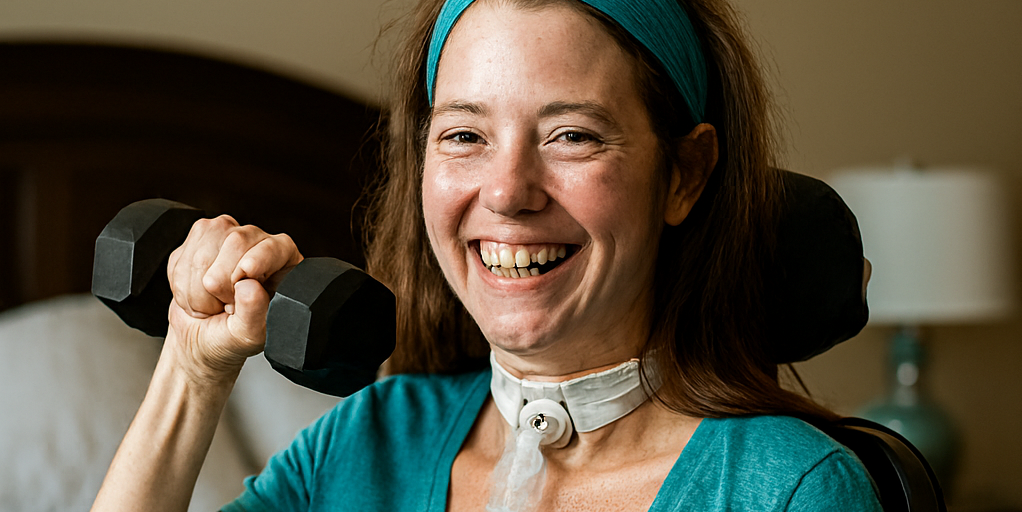Read time 4 minutes
When My Body’s Battery Runs Low
Think about your phone. You charge it all night, but in the morning, it only shows 20%. Annoying, right? Now imagine your body works the same way. No matter how much you rest, you wake up tired. That’s what life with a Mitochondrial Disorder feels like.
Mitochondria are tiny parts inside our cells. They produce energy for everything we do, including walking, thinking, and digesting food. When they don’t work properly, the body struggles to make enough energy.
This is my story (what’s in my name?). I am a young lady living with a mitochondrial disorder. My journey is about tired muscles, funny comebacks, and learning how to live with a body that doesn’t always cooperate.
My Story: From Sports to Slow Steps
I was once super active. I played cricket with friends, danced at weddings, and even dreamed of running a marathon. But in my mid-20s, things started to change.
- I felt tired even after sleeping for hours.
- My legs hurt after climbing just a few stairs.
- I had headaches and found it hard to focus.
At first, I thought it was just stress. But when I fainted during a morning jog, my family rushed me to doctors. After many tests, the answer came: Mitochondrial Disorder.
What Is a Mitochondrial Disorder?
Mitochondria = batteries inside our cells. And Mitochondrial disorder = weak or faulty batteries. It means the body doesn’t make enough energy.
Mitochondria are everywhere in the body; the illness can affect many parts at once. Common problems include:
- Feeling very tired
- Weak muscles
- Trouble with memory or focus
- Stomach issues
- Vision or hearing problems
It’s rare, and it looks different for each person.
Daily Life: Living on ‘Battery Saver Mode’
I often joke that I now live like a phone on low power mode. Every activity cost energy, so I have to plan carefully.
- Morning: If she cooks breakfast, she may not have energy left to go shopping.
- Afternoon: A short walk might mean skipping evening plans.
- Evening: If she attends a wedding, the next day is a “rest day.”
Doctors call this pacing or the energy envelope. I call it “battery budgeting.”
I believe laughter is medicine.
I often make jokes about my condition:
- When friends ask why I’m tired, I say: “My mitochondria are on strike. They want better working hours.”
- When my phone battery dies, I laugh: “Finally, something that understands me.”
- At weddings, when people drag me to dance, I say: “I only do slow-motion moves, it’s not style, it’s survival.”
I know that my humor doesn’t remove the illness, but it makes my journey lighter.
Treatment and Care: What Helps
There is no cure yet for mitochondrial disorders. But doctors focus on helping me feel better and manage symptoms.
- Supplements: Things like Coenzyme Q10, L-carnitine, and vitamins have helped me.
- Diet: Eating balanced meals and small snacks to avoid energy crashes.
- Exercise: I prefer gentle activities like yoga and swimming.
- Rest: I take naps and have learned not to push myself too hard.
- Check-ups: I do regular visits to specialists for heart, brain, and muscles.
My key takeaway: If my body says stop, I stop. If it says nap, I nap. Fighting it only makes things worse.
The Invisible Illness
One of the hardest parts is that mitochondrial disorders are invisible.
I look healthy on the outside, so people sometimes think I’m lazy. But “It’s not just being tired. It’s a rare disease. But explaining that again and again is exhausting too.”
I strongly feel that awareness is the key. The more people know, the easier it is for patients to get support. And I think that’s why I decided to write my story for this platform.
Lessons from My Journey
Here are some things I have learned:
- Energy is precious. Spend it wisely. Just like money, energy needs budgeting.
- Laughter helps. Jokes don’t cure the illness, but they make life easier.
- Community matters. Support groups helped me feel less alone.
- Celebrate small wins. Cooking a meal or attending a family event is a victory.
- Awareness is power. The more people know, the better we are understood.
A Note for My Fellow Readers
If you or someone you know has a mitochondrial disorder, remember:
- There are many like you around the globe.
- Your struggles are real, even if they’re invisible.
- It’s okay to rest. It’s okay to say no.
- And yes, it’s okay to laugh at your mitochondria sometimes.
Conclusion
I may not run marathons anymore, but I am running a different kind of race. The race to live fully, joyfully, and honestly despite my condition.
“My mitochondria may be weak, but my sense of humor is fully charged.”
DISCLAIMER
The views expressed in this article are the author’s own and do not represent any medical advice.


